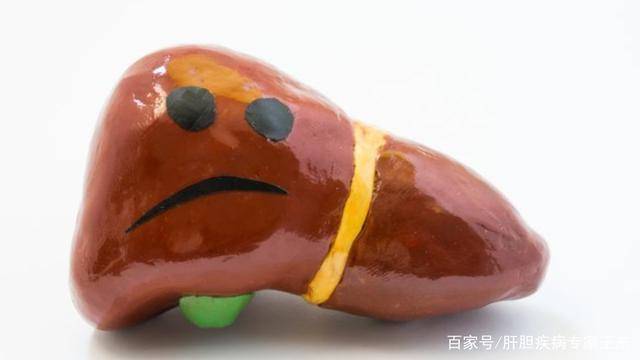The proverb goes: “If the liver is not good, one will age before getting old!”
The importance of whether the liver is good or not goes without saying.
The liver, with its highly complex functions, is also the largest digestive organ in the human body.
It is involved in various tasks such as detoxification, metabolism, synthesis, secretion, and more on a daily basis, earning the title of a hardworking organ.
However, the liver is also a very “silent” organ, often getting sick without making a sound, catching us off guard.
Therefore, as illnesses come crashing down like a mountain, it’s important to take care of the liver early!
If the liver is not good, aging will come prematurely! Eating the six following items and drinking the three types of water regularly will keep the liver healthy and everything else in good condition!
The six items:
一: Cabbage
Cabbage belongs to the cruciferous vegetable family, which assists in helping the liver break down various chemical toxins and carcinogens.
These vegetables typically contain a variety of plant nutrients, flavonoids, carotenoids, and more. Common examples include bok choy and white radish.
二: Banana
Bananas are highly nutritious fruits containing abundant protein, potassium, vitamin A, vitamin C, dietary fiber, and other beneficial components.
In particular, vitamin B1 or vitamin E found in bananas have special effects on the detoxification function of the liver.
Furthermore, bananas have benefits in promoting liver cell repair and regeneration, and protecting the liver.
三: Blueberries
Foreign studies have found that blueberries contain a large amount of bioactive substances, rich in anthocyanins, polyphenols, flavonoids, and other unique components not commonly found in other fruits.
Regular consumption of blueberries has a certain preventive and therapeutic effect on liver cirrhosis.
四: Olive oil
According to foreign research, olive oil has certain benefits in protecting the liver.
Regular consumption of olive oil reduces the impact of ingested toxins on the liver.
五: Kiwi
Kiwi is rich in calcium, vitamin C, vitamin E, essential amino acids, minerals, and many other effective ingredients.
Kiwi helps in detoxifying the liver and has a strong liver-protective effect.
For those who love drinking, eating kiwi after drinking can to some extent alleviate the effects of alcohol, and also quickly relieve discomfort such as gastrointestinal heat, nausea, and more.
六: Grapes
Grapes contain rich minerals such as calcium, potassium, phosphorus, and various vitamins and trace elements like B1, B2, B6.
The polyphenols in grapes act as natural antioxidants, possessing strong antioxidant activity, effectively adjusting the function of liver cells, resisting or reducing the damage caused by free radicals to the liver, and having excellent liver-nourishing and liver-protecting effects.
The three types of water:
一: Goji berry water
Goji berries, containing polysaccharides, have a certain protective effect on liver damage, can assist in reducing serum alanine aminotransferase levels, and promote repair of liver damage.
Goji berries can be steeped in hot water for drinking, serving as a substitute for plain water.
For white-collar workers who spend a lot of time on the computer, drinking goji berry water can also relieve eye fatigue and other issues.
二: Lemon water
Lemons are rich in vitamins B1, B2, C, niacin, sugars, calcium, phosphorus, iron, potassium, and many other nutrients, with high nutritional value.
Lemons have a good protective effect on the liver, aiding in promoting the body’s metabolism and assisting in the elimination of liver toxins.
Drinking some lemon water regularly is beneficial to overall health.
三: Honey water
Honey can protect the liver to a certain extent, providing the liver’s metabolic activities with energy reserves. It stimulates liver tissue regeneration and assists in repairing damage.
The liver dislikes four things the most; it’s best to avoid them!
First: Lack of sleep
Insufficient sleep and inadequate rest can cause relative insufficiency of blood flow to the liver, affecting the normal metabolism of liver cells.
Especially for those already infected with the hepatitis B virus, their already damaged liver cells will be difficult to repair and may worsen.
Second: Smoking and excessive drinking
The thousands of harmful substances in tobacco and cigarette smoke can damage the liver, being one of the main risk factors causing diseases and inducing cancer.
The ethanol metabolites produced by alcohol are extremely detrimental to the liver. Excessive drinking increases the risk of developing fatty liver and alcoholic liver disease.
Third: Randomly taking medication
Taking medication indiscriminately without following medical advice carries the risk of liver damage. Indiscriminate use of multiple drugs can easily lead to drug interactions, affecting the liver’s ability to metabolize drugs.
Fourth: Extreme anger and depression
There is a close relationship between the liver and emotions.
It is best to maintain a cheerful spirit and a pleasant mood as much as possible during normal times, as adverse emotions have a significant impact on the liver.


